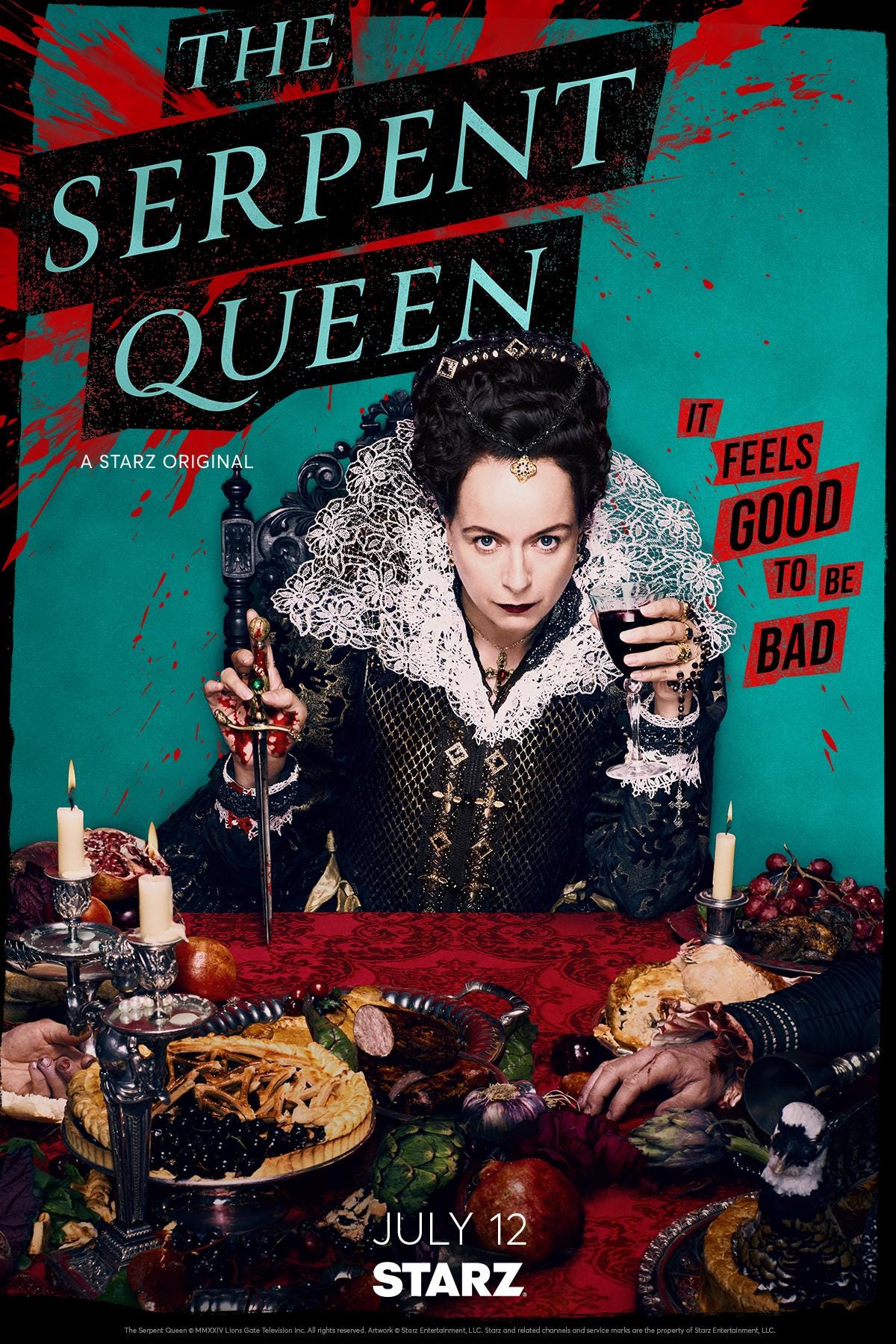Talk of the steamy: why TV is turning up the heat on historical drama
Has anyone else noticed that historical dramas are filthy nowadays?
This feature first appeared in The Sunday Post in late 2023.
Gone are your mother’s gentle Sunday night period dramas.
These days, be it a sumptuous 10-episode romp on television or a three-hour historical epic in the cinema, you’re bound to get more shock than awe when you sit down to watch your favourite historical figures brought back to life on the silver screen.
Period dramas have always been popular, but a new crop of cool, edgy TV shows and movies like The Serpent Queen, My Lady Jane, Mary And George, and Napoleon are pushing the envelope in terms of what we see of the past on screen.
While we once watched with bated breath to see if the literary Bennet sisters found their perfect husbands, we’re now more likely to root for a historical queen as she schemes to bump off her useless king and claim the throne for herself. Douglas McNaughton, a senior lecturer at Brighton University and expert on British television, says that, when TV drama first took off, telly makers rifled their bookshelves for ideas and adapted beloved classic novels of our past.
These books, like Pride And Prejudice and A Christmas Carol, were contemporaneous of the time they were written in, and so were restrained by the morality of their eras. These shows became massive hits, especially when they were shot on location with gorgeous backdrops.
McNaughton says: “There’s been a lot of research to say that the spectacle of these types of shows, the locations and the lavish costumes, is a big part of the appeal for audiences. “The problem is, Jane Austen inconveniently only wrote six novels. They’re running out of classic books to adapt. So the sources for these shows and films are getting broader and broader.”
Dr Catriona Miller, a media professor at Glasgow Caledonian University, agrees: “We are now seeing books written by present-day historians being adapted for screen. For example, the TV show Harlots was based on the non-fiction book The Covent Garden Ladies by historian Hallie Rubenhold. And so these adaptions are a bit grittier, a bit dirtier, a bit sexier.”
As society changes, so does history. A move towards diversity and inclusivity in modern times has meant historical study has opened up too, allowing for the deeper exploration of topics ignored or hidden by earlier generations of historians. There is now more interest in non-Western history, queer history and women’s history. And this new research has uncovered a treasure trove of stories, ripe for film and TV adaptation.
As our real and cellular worlds become more diverse, it might seem strange that we are turning historical elites into our modern-day antiheroes. Last year’s The Serpent Queen announces itself with a screeching heavy metal-scored opening title sequence and sees Samantha Morton as Catherine de’ Medici swearing, scheming and murdering her way through the 16th-Century French court. She’s an underdog fighting against the odds, and yet, she’s based on an incredibly powerful woman who has almost nothing in common with people today. Why have we chosen these privileged historical figures as our entry points into the past?
Historian, author and broadcaster Dr Owen Emmerson, who worked for six years at Anne Boleyn’s childhood home, Hever Castle, says it is easy for us to empathise with these historical figures, even if they wouldn’t necessarily do the same for us.
“Speaking as a gay man, you’ll find that people from different walks of life recognise injustice. A lot of people will recognise the injustice in what happened to Anne Boleyn, for example. What happened to Anne was a miscarriage of justice and, therefore, it is quite easy to see her as a bit different, a bit of an outcast who divided opinion, and who suffered terribly because of it.
“It’s very easy for us to think we can relate to that, and to grow fond of our idea of that person, and see ourselves in them. But, in reality, if I had the chance to walk up to Anne Boleyn and ask about her life story, she’d probably have me arrested!”
While these fictional takes on historical figures offer what seems like mere entertainment, there may be a danger in continuing to feed into the mythology of these historic strong men and women. Napoleon, directed by Ridley Scott and starring Joaquin Phoenix and Vanessa Kirby, depicts the titular French emperor as a flawed but tragic genius, who has marital troubles with his equally flawed and tragic wife.
Little is made of the horrific legacy of the Napoleonic Wars, or of Napoleon’s exploits across the rest of the globe. “I don’t think dramatists have a responsibility to historical accuracy, but I do think they have something of a responsibility in the types of stories they tell,” says Emmerson.
“These are people who wielded unprecedented power and control over the lives of pretty much everyone they ruled over, and it makes them do terrible things. “There is a much bigger conversation to be had about the corrupting nature of power.”
Miller adds: “These dramas are very fluffy fantasies and, on one level, great entertainment. The danger is it subconsciously feeds the fantasy that a powerful leader is going to come and tell us what to do.
“With the climate crisis and the problems we are facing – I don’t think that’s the answer we need. I think wishing for a powerful leader is a dangerous wish, looking back on 20th-Century history.”
Read more at Highway Kind.






